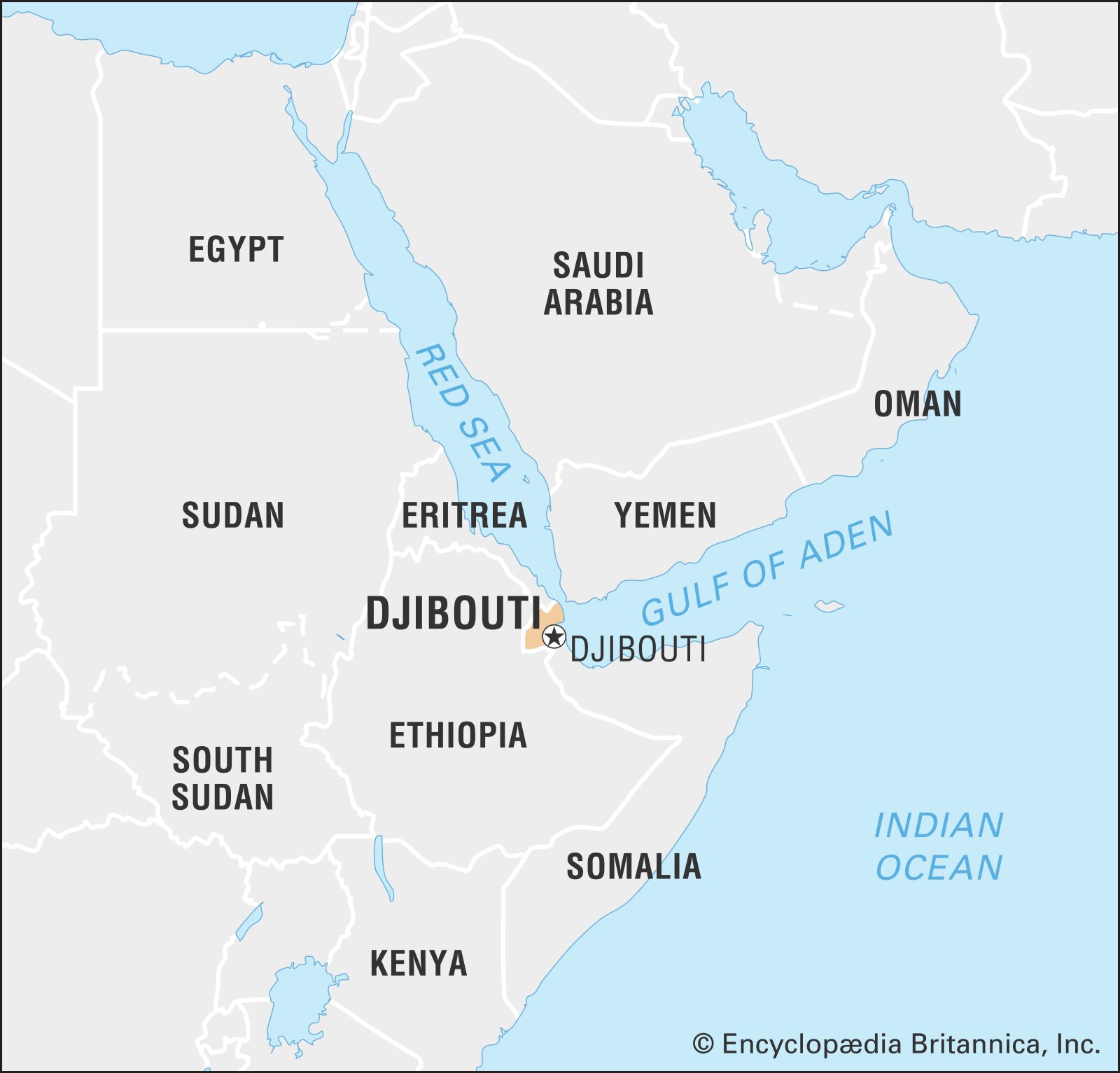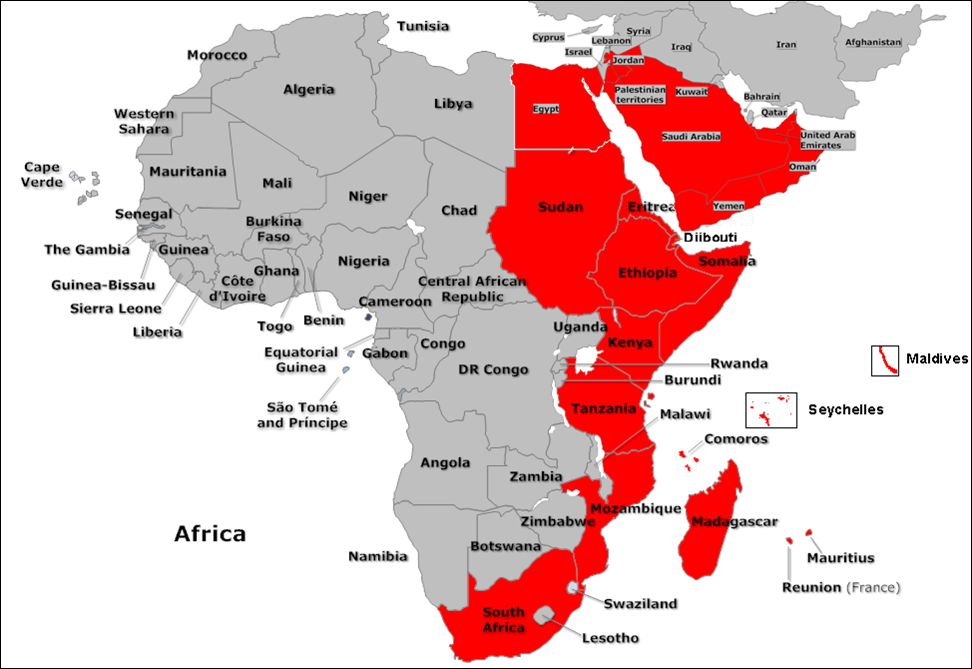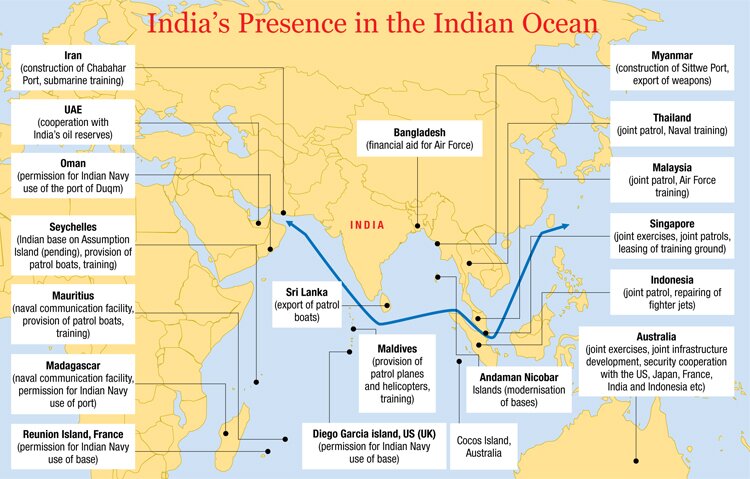International Relations
Djibouti Code of Conduct
- 17 Sep 2020
- 5 min read
Why in News
India joined the Djibouti Code of Conduct (DCOC) as an observer as part of efforts aimed at enhancing maritime security in the Indian Ocean region.
Key Points
- Djibouti Code of Conduct:
- About: It is also known as the Code of Conduct concerning the Repression of Piracy and Armed Robbery against Ships in the Western Indian Ocean and the Gulf of Aden.
- It was adopted on 29th January 2009.
- It was established under the International Maritime Organization (IMO).
- Objective: Under the code, the signatories agreed to co-operate to the fullest possible extent in the repression of piracy and armed robbery against ships.
- Jeddah Amendment: An amendment to DCOC was made in 2017 to cover other illicit maritime activities, including human trafficking and illegal, unreported and unregulated fishing and to build national and regional capacity to address wider maritime security issues, as a basis for sustainable development of the maritime sector.
- Signatories: It has been signed by 20 countries including Djibouti, Ethiopia, Kenya, Madagascar, Maldives, Seychelles, Somalia, the United Republic of Tanzania, Yemen, Comoros, Egypt, Eritrea, Jordan, Mauritius, Mozambique, Oman, Saudi Arabia, South Africa, Sudan and the United Arab Emirates.
- The member states are located in areas adjoining the Red Sea, Gulf of Aden and the east coast of Africa and include island nations in the Indian Ocean.
- Observers: India, Japan, Norway, the UK and the USA.
- About: It is also known as the Code of Conduct concerning the Repression of Piracy and Armed Robbery against Ships in the Western Indian Ocean and the Gulf of Aden.
- Significance of India Becoming an Observer
- Boosting its Indian Ocean Outreach: As India is strengthening its position in the Indian Ocean and nearby waters as part of its overall Indo-Pacific policy, this move will help it in increasing its strategic footprints in Western and Eastern Indian Ocean besides Eastern African coastal states.
- Blue Economy: Blue economy is one of the key areas of the Jeddah Amendment.
- It refers to the sustainable use of ocean resources for economic growth, improved livelihoods and jobs, and ocean ecosystem health.
- India has also focussed on the growth of the blue economy through its framework of Indian Ocean Rim Association and DCOC may be another step in that direction.
- India-China: China’s territorial claims in the South China Sea, its claim in the East China Sea and its rapid advance into the Indian Ocean through ambitious strategic and economic initiatives like the String of pearls and Belt-and-Road Initiative may pose a threat to india.
- Further, China is modernising its military base at Djibouti.
- Given India’s stakes in Indian ocean and rising Indo-China conflicts, it is very significant for India to develop blue-water naval capabilities.
India in Indo-Pacific
- Shangrila Dialogue: India has internationally emphasized on including the western Pacific and the Indian Ocean in the concept of Indo-Pacific, like at Shangrila Dialogue in 2018.
- In accordance, it also set up an Indo-Pacific division in the Ministry of External Affairs.
- Quad: Quadrilateral Security Dialogue (Quad) refers to an ad hoc group including Australia, India, Japan, and the USA with a shared objective to ensure and support a “free, open and prosperous” Indo-Pacific region.
- India has signed reciprocal military logistics support agreements with Australia, USA and Japan to increase interoperability with the navies of those countries.
- ASEAN: India has emphasized the centrality of ASEAN in its Indo-Pacific framework and India’s Act East policy provides strategic direction to increase its cooperation with ASEAN members.
- SAGAR: The Indian government introduced the concept of SAGAR (Security And Growth for All in the Region) in 2015 as its strategic vision for the Indian Ocean Region.
- Through SAGAR, India seeks to deepen economic and security cooperation with its maritime neighbours and assist in building their maritime security capabilities.
- India’s other policies impacting the maritime domain include Project Sagarmala, Project Mausam, Information Fusion Centre (IFC) for the Indian Ocean Region (IOR), etc.
- India has also begun to focus on its strategic partners in the Western Indian ocean. It has been accepted as an observer at Indian Ocean Commission.






